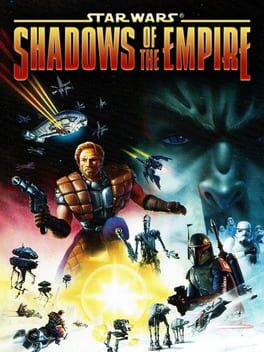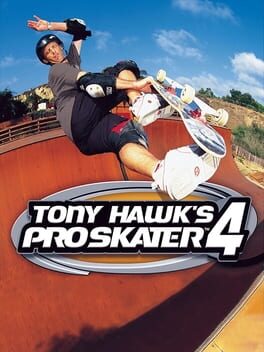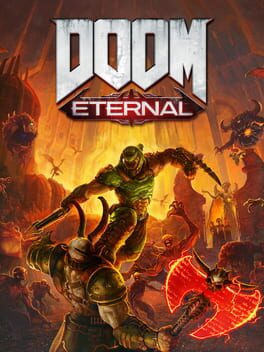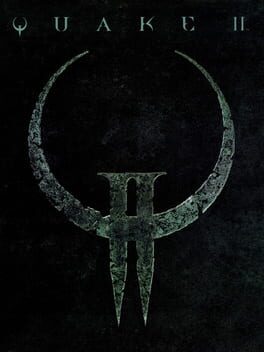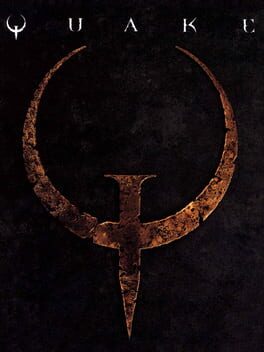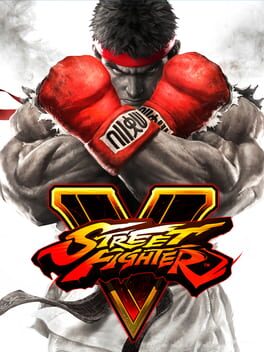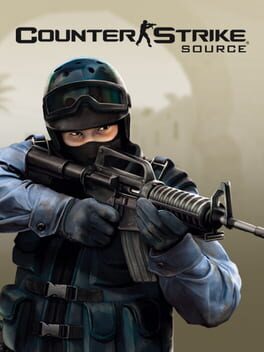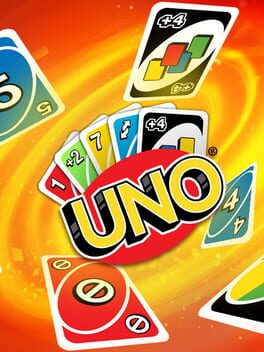letshugbro
4404 Reviews liked by letshugbro
100%ing a childhood game you had trouble with is an incredible feeling. Might need to do this with a few more. Reminds me that I've put in a ton of energy to get better at games and it's been worth it.
The first fully untimed and goal-based game in the series was my favorite as a kid and still is now. It sits at this beautiful place in Tony Hawk mechanics before useless shit like rage and getting off your board were added but when spine transfers and other movement-enhancing mechanics were in place. It's as tight and lean as could be. Everything here works the best it ever did and there's no bullshit.
The humor is mostly on point, but some mean-spirited jokes about sex trafficking and homeless people are Not Great. Most of it is so juvenile and harmless in a way that's still as charming as ever.
The first fully untimed and goal-based game in the series was my favorite as a kid and still is now. It sits at this beautiful place in Tony Hawk mechanics before useless shit like rage and getting off your board were added but when spine transfers and other movement-enhancing mechanics were in place. It's as tight and lean as could be. Everything here works the best it ever did and there's no bullshit.
The humor is mostly on point, but some mean-spirited jokes about sex trafficking and homeless people are Not Great. Most of it is so juvenile and harmless in a way that's still as charming as ever.
Doom Eternal
2020
When this was revealed, I said "Cool, more DOOM 2016." That couldn't have been a more wrong first impression, and I'm losing my mind over how good this game is. Eternal is all about crowd control and being the fastest thing you've ever fucking played. 2016 is honestly quaint in comparison...I loved that game, but I can't imagine going back to the constant cycle of being locked in a room, fighting a few waves with your basically infinite ammo, and moving to the next room that does the same. I originally thought that game was frantic and fast-paced, but the sensory overload and forced flow state of Eternal blows that game out of the water in every way.
I should mention that FUCKING "mortally challenged" joke that is like attack helicopter-tier Gamer bro "anti-SJW" garbage and they repeat it over and over throughout the whole game. I wouldn't mind it so much if I didn't have to hear it CONSTANTLY. Someone was clearly proud of that and I hate them for it. I guess I shouldn't have expected much better...the joy of this game is in its unrelenting immaturity. DOOM 2016 tried to still be 'classy' and grounded in a way that this just has no interest in replicating.
That's the worst and the best of Eternal, if I think about it. It's a pain in the ass and almost sickeningly masculine. Doomguy ascends from action-hero-cool to horny-audio-logs-calling-him-a-god cool. It's pretty obnoxious at times, but moreso admirable in how boldly ridiculous the whole thing is. It's in no way self-conscious, instead being such a silly over-the-top power fantasy that you can't help but be charmed. There's none of the weak attempts at being taken seriously that plague AAA games, and that opens up DOOM Eternal to things its predecessor wouldn't have dreamed of. Environments are abstract and overwhelmingly "gamey," fitting in perfectly with the drastically expanded movement systems and coming together into a whole so satisfying that I actually LOVED first person platforming. Who knew it was possible?
The new combat loop is a brilliant innovation that is literally the biggest breakthrough in the fps genre in decades. I'm not sure how to really put into words the amount that this adds. I'll have to write about it on its own sometime. I love how this game makes you play it on its own terms. If you're playing on ultra-violence, at least, you can't get away with just being good at first person shooters like you could with 2016 and most of the rest of the genre. No, mastering The Loop is absolutely essential and forced me out of my comfort zone in such an exciting way. Nothing feels like this game. Nothing moves like this game. Nothing is like this game.
As much as I've loved calling Amid Evil my favorite first person shooter and love how it looks on my profile, DOOM Eternal clearly stands above every previous fps. Somehow id managed to reinvent the genre that they effectively launched with their original classics. Good fucking lord.
I should mention that FUCKING "mortally challenged" joke that is like attack helicopter-tier Gamer bro "anti-SJW" garbage and they repeat it over and over throughout the whole game. I wouldn't mind it so much if I didn't have to hear it CONSTANTLY. Someone was clearly proud of that and I hate them for it. I guess I shouldn't have expected much better...the joy of this game is in its unrelenting immaturity. DOOM 2016 tried to still be 'classy' and grounded in a way that this just has no interest in replicating.
That's the worst and the best of Eternal, if I think about it. It's a pain in the ass and almost sickeningly masculine. Doomguy ascends from action-hero-cool to horny-audio-logs-calling-him-a-god cool. It's pretty obnoxious at times, but moreso admirable in how boldly ridiculous the whole thing is. It's in no way self-conscious, instead being such a silly over-the-top power fantasy that you can't help but be charmed. There's none of the weak attempts at being taken seriously that plague AAA games, and that opens up DOOM Eternal to things its predecessor wouldn't have dreamed of. Environments are abstract and overwhelmingly "gamey," fitting in perfectly with the drastically expanded movement systems and coming together into a whole so satisfying that I actually LOVED first person platforming. Who knew it was possible?
The new combat loop is a brilliant innovation that is literally the biggest breakthrough in the fps genre in decades. I'm not sure how to really put into words the amount that this adds. I'll have to write about it on its own sometime. I love how this game makes you play it on its own terms. If you're playing on ultra-violence, at least, you can't get away with just being good at first person shooters like you could with 2016 and most of the rest of the genre. No, mastering The Loop is absolutely essential and forced me out of my comfort zone in such an exciting way. Nothing feels like this game. Nothing moves like this game. Nothing is like this game.
As much as I've loved calling Amid Evil my favorite first person shooter and love how it looks on my profile, DOOM Eternal clearly stands above every previous fps. Somehow id managed to reinvent the genre that they effectively launched with their original classics. Good fucking lord.
Quake II
1997
This game is confused. It's caught in this weird period of transformation for the fps genre between the intense constant action of the classic id games and the attempts to add narrative and tie the player down to more concrete and compelling goals than "get to the end" that would find its mature form a year later with Half-Life.
See, you kind of have to talk about Half-Life when talking about this game because it is desperately reaching for very similar goals, short of the friendly AI. Quake II pushes the player through various alien complexes (most of which are some variation on "fucked-up torture chamber"...the sadistic joy it takes in throwing them in every possible kind of wood chipper gets exhausting) and has them complete tasks along the way that are more involved than "get key, open door".
On the surface it's more than keys and doors, at least. The tasks are actually part of the narrative, amounting to shutting down a computer here to get through this area and chase the boss, or whatever. For the most part the player does just run around and press buttons to get through different doors. It's very thinly veiled. To add that grounded investment and guide the player around, there's a computer bound to F1 which gives a brief sentence describing the next objective, and it's probably the worst design decision here. Breaking up semi-traditional id combat with reading log entries vaguely telling me what I'm looking for makes for an experience that really clashes with itself. It's also just a massive pain in the ass. Going in circles in these very samey environments, backtracking to find your way to another identical-looking area to find the right button to press is so draining and not what I want to be doing in an fps like this.
Half-Life would later marry these goals with mechanics and level design that actually compliment them, giving the player a sense of purpose through environmental puzzles, a strong forward momentum, and slower, more methodical combat which could feel oppressive. It's easy to look back at this era and think about how great Half-Life was and also lament its murder of the 90s shooter. That game killed the adrenaline, killed the crowd control, killed the early purity of the genre, and that kind of sucks. But when you look at games shortly before Half-Life like this one, you see that there's no way developers could have reached for the new kinds of experiences they wanted to give us while also keeping the intensity the genre and id's entries in particular had at their core. When you try to do both, you end up with games like Quake II. Painful stop-and-start and "WHERE THE FUCK DO I GO" moments really smack down the strong mechanical core that's here. More recently id themselves have been trying that balance again with the DOOM reboot, leading to similar issues, though modern conveniences like map markers and a much heavier focus on the action make DOOM 2016 a much more successful experiment than the second Quake. So maybe Quake II's take on the genre just came at the wrong time, and we needed to learn from the hard swing toward the Half-Life model that dominated the 00s to pull it off right.
Quake II does not at all live up to the tight near-perfection of its predecessor, but it's a solid shooter and worth a play. If anything, it's a fascinating historical document for anyone who cares about first person shooters. We're still trying to solve the problems that this entry was taking an early crack at, so I guess I can't blame it too much. It's still a good time. Shooting feels good, and once you get that glorious RL + rail combo everything falls into place. Play it and enjoy yourself, but you'll probably come out the other end happy that Quake II didn't spawn many imitators.
See, you kind of have to talk about Half-Life when talking about this game because it is desperately reaching for very similar goals, short of the friendly AI. Quake II pushes the player through various alien complexes (most of which are some variation on "fucked-up torture chamber"...the sadistic joy it takes in throwing them in every possible kind of wood chipper gets exhausting) and has them complete tasks along the way that are more involved than "get key, open door".
On the surface it's more than keys and doors, at least. The tasks are actually part of the narrative, amounting to shutting down a computer here to get through this area and chase the boss, or whatever. For the most part the player does just run around and press buttons to get through different doors. It's very thinly veiled. To add that grounded investment and guide the player around, there's a computer bound to F1 which gives a brief sentence describing the next objective, and it's probably the worst design decision here. Breaking up semi-traditional id combat with reading log entries vaguely telling me what I'm looking for makes for an experience that really clashes with itself. It's also just a massive pain in the ass. Going in circles in these very samey environments, backtracking to find your way to another identical-looking area to find the right button to press is so draining and not what I want to be doing in an fps like this.
Half-Life would later marry these goals with mechanics and level design that actually compliment them, giving the player a sense of purpose through environmental puzzles, a strong forward momentum, and slower, more methodical combat which could feel oppressive. It's easy to look back at this era and think about how great Half-Life was and also lament its murder of the 90s shooter. That game killed the adrenaline, killed the crowd control, killed the early purity of the genre, and that kind of sucks. But when you look at games shortly before Half-Life like this one, you see that there's no way developers could have reached for the new kinds of experiences they wanted to give us while also keeping the intensity the genre and id's entries in particular had at their core. When you try to do both, you end up with games like Quake II. Painful stop-and-start and "WHERE THE FUCK DO I GO" moments really smack down the strong mechanical core that's here. More recently id themselves have been trying that balance again with the DOOM reboot, leading to similar issues, though modern conveniences like map markers and a much heavier focus on the action make DOOM 2016 a much more successful experiment than the second Quake. So maybe Quake II's take on the genre just came at the wrong time, and we needed to learn from the hard swing toward the Half-Life model that dominated the 00s to pull it off right.
Quake II does not at all live up to the tight near-perfection of its predecessor, but it's a solid shooter and worth a play. If anything, it's a fascinating historical document for anyone who cares about first person shooters. We're still trying to solve the problems that this entry was taking an early crack at, so I guess I can't blame it too much. It's still a good time. Shooting feels good, and once you get that glorious RL + rail combo everything falls into place. Play it and enjoy yourself, but you'll probably come out the other end happy that Quake II didn't spawn many imitators.
Quake
1996
Death Stranding
2019
it cant be overstated how important kojima is to the game industry. like him or not, he's revolutionized the way we see game design more than once. with his newest game he may not change the way we look at games, but he still proves he knows how to make a new idea work perfectly well.
i went into this game expecting it to suck hard. i thought it would just be walking from point a to b with some face-level story on top. i was severely wrong.
the amount of nuance from just getting package x to point a is insane, with everything down to the terrain keeping your attention. hell will rise from the ground to keep you from delivering some packages. but deliver them you will god damn it, because youre Sam Porter Bridges.
there's so many things that keep gameplay from getting stale, down to the end of the game youre constantly unlocking new weapons and gadgets and modes of transport. on top of that youve got MULE camps which never stop being satisfying and the BT sections which never stop being tense. everything feeds into everything else and its impossible to look away from the screen once it starts, and i have never played anything like it.
but what truly elevates this game is the balls to the wall story. the horrifying symbolism of strands and hands and uterine glands makes for a visual experience unlike anything before it. it's a weird thing to say, but this might be the most well-shot game i've ever played. not to mention that every character is extremely well written and even more interesting than the last, the obvious highlight being Mads Mikkelsen.
death stranding's america is a world i wont forget and the tense package delivery along with it. theres truly nothing like this game and i applaud everyone involved for making such an interesting, dare i say bold game work so god damn well. just one more feather in kojima's cap.
i went into this game expecting it to suck hard. i thought it would just be walking from point a to b with some face-level story on top. i was severely wrong.
the amount of nuance from just getting package x to point a is insane, with everything down to the terrain keeping your attention. hell will rise from the ground to keep you from delivering some packages. but deliver them you will god damn it, because youre Sam Porter Bridges.
there's so many things that keep gameplay from getting stale, down to the end of the game youre constantly unlocking new weapons and gadgets and modes of transport. on top of that youve got MULE camps which never stop being satisfying and the BT sections which never stop being tense. everything feeds into everything else and its impossible to look away from the screen once it starts, and i have never played anything like it.
but what truly elevates this game is the balls to the wall story. the horrifying symbolism of strands and hands and uterine glands makes for a visual experience unlike anything before it. it's a weird thing to say, but this might be the most well-shot game i've ever played. not to mention that every character is extremely well written and even more interesting than the last, the obvious highlight being Mads Mikkelsen.
death stranding's america is a world i wont forget and the tense package delivery along with it. theres truly nothing like this game and i applaud everyone involved for making such an interesting, dare i say bold game work so god damn well. just one more feather in kojima's cap.
Death Stranding
2019
For better or worse every single game design choice in DS is implemented to support its story's core themes of connection and progression-through-connection. Even it's fantastic multiplayer integration excels at making you feel connected with every other version of Sam Bridges struggling to make it up each mountain, across every rivers, and through another MULE camp. It genuinely makes you want to help other players to the point where I was leaving rope in areas that I knew I would never re-visit, simply in the hopes it would help someone else who came across it.
For all the joking about Kojima's "strand-game" I do feel he was successful. You aren't doing action, stealth, or platforming to connect people in the story, the gameplay IS connecting people. Sure, those elements do exist, but the connections are what propel not only the story, but the gameplay systems themselves. Making connections and then strengthening those connections, unlocks tools that allow you to circumvent the more traditional gameplay elements all together.
I also feel the need to recognize this game's fantastic mechanical and UI design, and how well they compliment eachother. DS's aesthetic is perfectly realized in the not-so-far-distant look of the architecture/machinary and the matching menu's that appear when you engage with them.
For all the joking about Kojima's "strand-game" I do feel he was successful. You aren't doing action, stealth, or platforming to connect people in the story, the gameplay IS connecting people. Sure, those elements do exist, but the connections are what propel not only the story, but the gameplay systems themselves. Making connections and then strengthening those connections, unlocks tools that allow you to circumvent the more traditional gameplay elements all together.
I also feel the need to recognize this game's fantastic mechanical and UI design, and how well they compliment eachother. DS's aesthetic is perfectly realized in the not-so-far-distant look of the architecture/machinary and the matching menu's that appear when you engage with them.
Street Fighter V
2016
Hades
2020
That there was such a focus on thematic art direction and narrative meant I actually cared to see this Roguelite through to the end, multiple times. Shocked and stunned beyond all belief that an entry in this genre can actually look pretty, and not just be a dozen repeating mud tilesets.
For a game about systems compounding into "always-unique" runs, I still found myself rolling my thumb across the face buttons and dashing to victory regardless. Eventually grew weary of having to dungeon run for 20~ minutes before I saw some new dialogue, but it was nice affirming Medusa while it lasted. Such a sprawling and reactive script is obviously very impressive, I certainly hope loamlikes everywhere take the hint.
For a game about systems compounding into "always-unique" runs, I still found myself rolling my thumb across the face buttons and dashing to victory regardless. Eventually grew weary of having to dungeon run for 20~ minutes before I saw some new dialogue, but it was nice affirming Medusa while it lasted. Such a sprawling and reactive script is obviously very impressive, I certainly hope loamlikes everywhere take the hint.
Fallout: New Vegas
2010
I wasn't against the changes Bethesda made to the Fallout IP - as much as I liked the old Fallout games, Fallout 3 more closely resembles the kind of games I normally play. Bethesda, though, has a design philosophy where their games tend to center player expression and empowerment over character expression and role-playing. This isn't necessarily wrong, but I find I get less replayability out of games centered on player expression - think Skyrim, where you can see just about everything in a single save and you're rarely locked into any of the choices you've made outside of the civil war storyline. Your actions cannot have hefty consequences because consequences could lock the player out of future quests/interactions.
FNV brings things back towards character expression - the character is more than just a way for the player to interface with game mechanics, they are meant to be a person that you assign traits to and a filter through which you see the world. It's not the pinnacle of this kind of design, but they had 18 months to make a game and they knocked it out of the park with both the quality of writing and player choice.
There are tons of quality-of-life improvements over Fallout 3 here as well, most of which I won't get into because they're not particularly mindblowing, but they do add up to a significant difference in how pleasant it is to play the game. There are things I don't like as well: I think the game would be better off without the karma system and I think the game needs more NPCs that say "fuck you, you said the wrong thing to me and I hate you, so you don't get to do my quest anymore". Both of these are nitpicky though and none of my complaints really amount to glaring issues.
This is one of those games that I would really recommend to anyone - while the shooting won't blow anyone away, it does its job and you can opt out almost entirely by using VATS if you don't want to do that bit.
FNV brings things back towards character expression - the character is more than just a way for the player to interface with game mechanics, they are meant to be a person that you assign traits to and a filter through which you see the world. It's not the pinnacle of this kind of design, but they had 18 months to make a game and they knocked it out of the park with both the quality of writing and player choice.
There are tons of quality-of-life improvements over Fallout 3 here as well, most of which I won't get into because they're not particularly mindblowing, but they do add up to a significant difference in how pleasant it is to play the game. There are things I don't like as well: I think the game would be better off without the karma system and I think the game needs more NPCs that say "fuck you, you said the wrong thing to me and I hate you, so you don't get to do my quest anymore". Both of these are nitpicky though and none of my complaints really amount to glaring issues.
This is one of those games that I would really recommend to anyone - while the shooting won't blow anyone away, it does its job and you can opt out almost entirely by using VATS if you don't want to do that bit.
